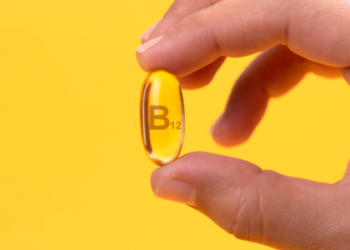
WHEN Brent Pope sought help in the past for the anxiety that has dogged him all his life, he was advised to get some fresh air or go to the gym.
“You were told to suck it up and do a few more laps,” recalls Pope, a well-known TV sports analyst and former rugby player.
“Why is it OK to seek help about a strained hamstring and it’s not OK to say ‘I am going through a period of extreme self-doubt and anxiety in both sports and life’?”
Statistics show that mental health issues in Ireland are a common problem — a 2011 study, for example, found that by age 24, more than half of our young people had experienced problems with their mental health, while according to the support group Aware, up to 400,000 people in Ireland suffer from depression at any one time.
Yet, says Pope, it’s still considered “as a slight weakness if someone has to seek help from a psychological point of view”.
Not an easy environment for players under ever-increasing pressure from managers to perform — and from social media ‘trolls’ who are always quick to highlight mistakes on the field.
“Stuff gets out so quickly if you make an error on the field,” says mental skills coach and psychotherapist Jason Brennan, who says the pressure is continually ramping up for young athletes.
“Players already know they made a mistake but it gets magnified in social media.
“Trolls and other people who poke holes in players and criticise will be the first to get online without considering that there’s a person there who has made a mistake and who will see themselves as letting down their team.
“Too much negative social media commentary can make players lose confidence in themselves, make them feel more vulnerable,” he says, adding that trolls seem to “forget” that there is a human being inside the jersey.
But attitudes towards mental health and its impact on a player’s performance are changing in sports organisations across the board, believes mental health advocate Pope who, along with Brennan, has written a new book.
Win outlines the mental skills which the duo believe are key to achieving both success and wellbeing, not just in sports but in life.
Their strategies are underlined through interviews with high-profile athletes including AP McCoy, Ronan O’Gara, Sonia O’Sullivan, and brothers Gary and Paul O’Donovan.
“There’s a growing recognition that mental health plays a huge part in sport. Different sports organisations are tackling it in different ways,” says Pope. Examples of such programmes include the GAA’s highly successful Healthy Clubs Project and the Tackle Your Feelings campaign at Rugby Players Ireland.
“The concept now is that a person who is overall happy in his or her life is a better player.
“A lot of coaches and administrators are putting more emphasis on the mental side of sports,” he says, adding that there’s a growing acknowledgement that a person cannot perform at his or her individual highest level unless the player is “mentally and physically in tune”. Pope himself is familiar with life’s ups and downs — a hugely talented player, he was selected in the original 1987 New Zealand Rugby World Cup training squad, but had to withdraw a week before the tournament began due to a serious injury in the final series of All Black trials.
It was a huge blow. “I understand how people can have their dreams shattered as a result of injury, “ he recalls now.
“That was my time, that was my chance and it had come.
“Then, in the hardest of circumstances for a sports person — nothing to do with talent, just an unfortunate rugby injury that strips you of your dreams — it affected me psychologically,” recalls Pope, who also reveals that he has suffered from anxiety and panic attacks from age 13.
“It stopped me getting enjoyment out of my life for years. It was about failing, about fearing that I would never succeed in school or sports and would not have loving relationships. And I had it from that age.”
He experiences periods of anxiety and depression to this day.
“They have not left me,” he says, adding that over the years he gradually learned tools and strategies that worked — techniques like positive self-talk and mindfulness now help him cope. And that’s what the book is all about, for Pope, sharing what he’s learned.
“These things don’t disappear from your life. The book for me is about giving back the tools and strategies that I’ve learned,” he says.
“The other reason I wrote this book is also that I want to learn from successful Irish athletes how they handled periods of performance anxiety or depression.”
The lessons of the book apply to all areas of life, he believes.
“Sports is just the field I work primarily in but in business or anywhere else the same lessons can be learned and that is why these are strategies for success, and not just in sports.
“We’re hoping that people will take concepts like meditation, visualisation, and changing the thought process, and apply them to everyday life if they are feeling down or experiencing a lack of self- esteem or feeling anxiety.
“I spent the early part of my life in hopelessness because I thought I could not change things but now I know that I can change things. I can get through things and get better.
“We all experience moments of anxiety when we feel low or we have not achieved, but it’s about having the tools to do something about it, so when you feel like that you can say ‘this is what Sonia O’Sullivan or Ronan O’Gara or Eamonn Coghlan did, and maybe this will work for me’.”
The big thing to aim for, say the authors, is strong mental fortitude, or resilience.
It comes from practising mental skills. It’s like developing a muscle. “The more you build that muscle the stronger it gets,” says Brennan.

[“Source-gsmarena”]






